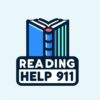Thank you for reaching out with your question. Reading to your child often is indeed a wonderful way to foster a love for reading and expose them to a variety of stories and vocabulary. However, developing reading skills encompasses more than just reading aloud. While your efforts are commendable, additional steps can help ensure your child is on track to be ready for first grade. Here are some suggestions:
- Active engagement: While reading aloud, engage your child in discussions about the story, characters, and plot. Ask open-ended questions to encourage critical thinking and comprehension. This helps develop their understanding and ability to analyze and interpret texts.
- Letter recognition: Introduce your child to letters and their sounds. Point out letters in everyday situations, such as on signs or in books. Encourage them to recognize and name letters, which lays the foundation for reading and phonics skills.
- Phonemic awareness: Practice phonemic awareness activities, which involve recognizing and manipulating individual sounds in words. This helps children understand the connection between spoken sounds and written letters, building essential reading skills.
- Sight word practice: Introduce high-frequency words, often called sight words, which appear frequently in texts. Help your child recognize these words by sight, as they can’t always be easily decoded phonetically. Practice through flashcards, games, or word recognition activities.
- Vocabulary enrichment: Expand your child’s vocabulary by using descriptive language during conversations and reading sessions. Discuss the meanings of unfamiliar words and encourage them to ask questions about words they encounter.
- Visit the library: Regular visits to the library expose your child to a wide range of books and reading materials. Librarians can also recommend age-appropriate books that align with your child’s reading level and interests.
- Seek feedback: Schedule regular meetings with your child’s teacher to discuss their progress in reading. The teacher can provide insights into areas where your child may need additional support or offer specific activities and resources to enhance their reading skills.
Remember, every child learns at their own pace, and it’s important to provide a nurturing environment that supports their individual needs. By incorporating these suggestions into your daily routines and staying involved in your child’s educational journey, you can help ensure they are well-prepared for the reading challenges they may encounter in first grade.
If you have any further concerns or questions, don’t hesitate to reach out to your child’s teacher or other educational professionals who can provide guidance tailored to your child’s specific needs. Keep up the great work in fostering a love for reading and supporting your child’s literacy development!



